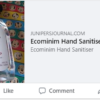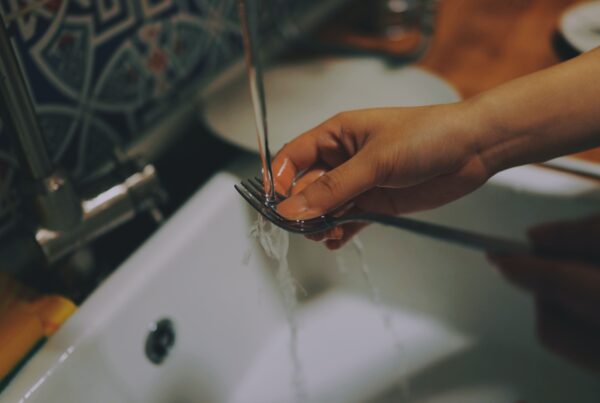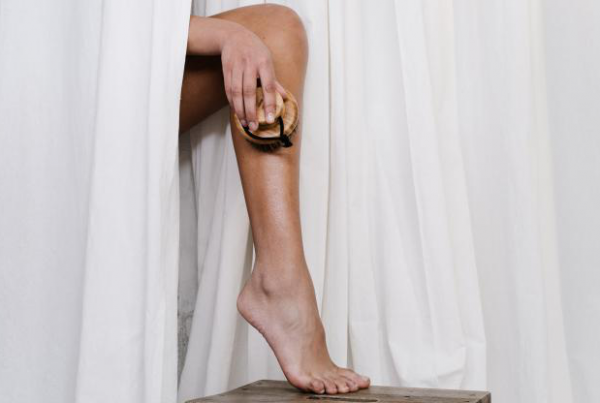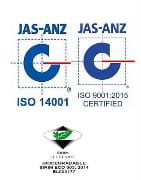For many of us, house chores like scrubbing toilets and doing laundry are an unavoidable part of life. But what happens when these seemingly harmless tasks lead to skin irritation?
Sensitive skin, when exposed to certain cleaning products, can develop a red, swollen, itchy rash – a condition dermatologists call contact dermatitis.
What Is Sensitive Skin?
When people mention “sensitive skin,” it can encompass a range of different symptoms and conditions. It is important to identify which of the four sensitive skin subtypes you’re dealing with: acne, rosacea, neurosensory (which causes burning and stinging sensations), and contact dermatitis. All these subtypes share a root cause – inflammation.
Inflammation occurs when your body’s inflammatory factors cause your blood vessels to dilate, triggering the release of a compound called histamine. In the case of contact dermatitis, both irritants and allergens can trigger this inflammatory response.
What Is Contact Dermatitis?
Irritants and allergens both fall into the sensitive skin subtype of contact dermatitis. Contact dermatitis happens when an irritant or allergen causes a rash on your skin. The main difference between the two is that an irritant can cause a skin reaction in anyone, whereas allergens only affect people with a specific immune response.
As a dermatologist with extensive experience in diagnosing and treating various skin conditions, I have encountered a notable number of patients suffering from irritant contact dermatitis. Interestingly, in my clinical practice, I have noticed that women are more commonly affected by irritant contact dermatitis compared to men.Irritant contact dermatitis comes from exposure to a product that can irritate anyone’s skin.
What’s Making Your Skin Break Out?
The most common triggers for irritant contact dermatitis are divided into exogenous and endogenous factors.
Exogenous factors include household detergents, furniture polish, drain cleaners, toilet disinfectants, soaps, alcohol-based sanitizers, fabrics, latex, fragrances, facial creams, lotions, and even some types of jewelry. Mechanical and environmental factors can also play a role.
Endogenous factors include age, sex (ICD is more common in women), race (a study showed Asian skin was significantly more susceptible to ICD when compared to Caucasian skin both in subjective and objective skin measurements), and atopy/genetic factor.
Proactive Strategies to Protect Sensitive Skin
Fortunately, there are several preventive measures you can take to protect your skin from irritants and reduce the risk of developing this bothersome condition.
-
- Identify and Avoid Irritating Substances: Awareness of what triggers your skin reactions is the first step towards prevention.
-
- Wear Protective Clothing and Gloves: Especially when working with potentially irritating substances or performing household chores. Be aware that latex gloves can also cause allergic reactions.
-
- Moisturize Regularly: Especially after washing your hands or taking a bath. Opt for fragrance-free, hypoallergenic moisturizers, which are less likely to cause irritation.
-
- Patch Test New Products: This can help you identify any potential irritants.
-
- Avoid Prolonged Moisture Exposure: If you’re frequently washing your hands or exposed to water, wear waterproof gloves or use barrier creams.
-
- Opt for Gentle Personal Care Products: Choose products designed for sensitive skin. This is where Ecominim®, an ecofriendly laundry detergent for sensitive skin, can come into play, with its range of gentle, plant-derived household products including hand washes and baby liquid detergents.
-
- Be Cautious with Cleaning Agents: Many household cleaning agents contain potent chemicals that can irritate the skin. Switching to more skin-friendly, natural alternatives like Ecominim®’s bathroom and floor cleaners can make a big difference. Their strict in-house tests ensure that any ingredient that doesn’t make the grade is reformulated and retested.
Ecominim®’s mission aligns with the needs of those with sensitive skin or contact dermatitis, as their products are crafted with plant-derived ingredients that clean effectively without drying your hands or leaving a soapy residue. The exclusion of common but potentially irritating ingredients such as SLES/SLS, betaine, CDE, parabens, phosphates, and triclosan is commendable.
In the pursuit of maintaining a healthy and irritation-free skin environment, choosing ecofriendly dlaundry detergent, a brand like Ecominim® that prioritize skin health and environmentally friendly practices could be a significant step forward.
————-
About the Author:
Dr. Erum Siddiqui is a seasoned Dermatologist, trained at the prestigious College of physician and Surgeons in Karachi, Pakistan. With over a decade of experience, she specialises in treating various skin conditions, from acne and eczema to skin pigmentation disorders and skin cancer. Dr. Siddiqui’s commitment to skin health extends to her advocacy for clean, hypoallergenic skincare products that leverage both natural and synthetically derived ingredients.
Her research contributions to multiple medical journals cover critical investigations into conditions like androgenic alopecia, female pattern hair loss, and insulin resistance in acne patients. Beyond her clinical practice, she tests and recommends an array of skincare and beauty products, providing expert advice drawn from her professional experience. As a dedicated member of the Pakistan Dermatology Association, she stays current with the latest advancements in dermatology, continually aiming to provide her patients with effective treatments and beneficial product recommendations.







